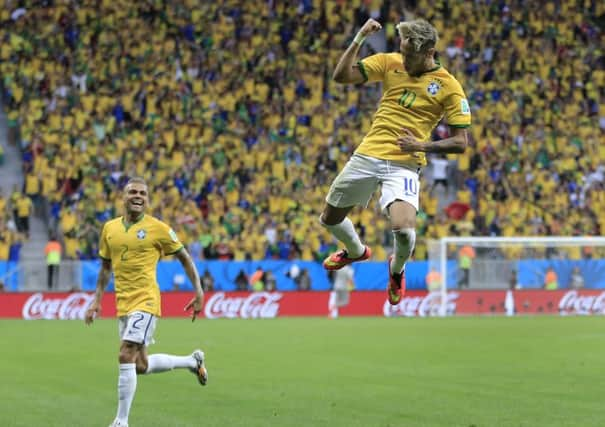World Cup - Richard Hercock: History favours ‘locals’ as European nations struggle to adapt


And of course they would have had to hide their sniggers if anyone had been foolish enough to chase the money on Roy Hodgson’s England.
Advertisement
Hide AdAdvertisement
Hide AdThe reason? The weight of history is against any European team lifting that famous old trophy come July 6.
All four World Cups held in South America—1930 (Uruguay), 1950 (Brazil), 1962 (Chile) and 1978 (Argentina)—were won by teams from the home continent.
Throw in that two of the four losing finalists were also from South America and it appears even more daunting.
If we stretch the South American boundaries to include Mexico – which staged the finals in 1970 and 1986, won by Brazil and Argentina respectively – then it really does tell a story of Latin American dominance.
Advertisement
Hide AdAdvertisement
Hide AdNot that European football doesn’t also have an advantage on this side of the Atlantic.
The only time a non-European team has triumphed here was in 1958 in Sweden, when a 17-year-old lad called Pete first shot to prominence.
So the writing was on the wall before a ball was kicked in Brazil this summer.
And a quick scan down the group tables shows history seems to be repeating itself.
Advertisement
Hide AdAdvertisement
Hide AdLook at the list of teams who have qualified so far – compiled before last night’s games – and it reads: Brazil, Mexico, Netherlands, Chile, Colombia, Greece, Costa Rica, Uruguay, France, Switzerland, Argentina and Nigeria.
The Dutch have impressed, the French have shown some neat flashes, but it is a list dominated by sides from the other side of the pond. Italy beat England, but there was little else to cheer for Cesare Prandelli, who swiftly offered his resignation.
Defending champions Spain were also a major casualty of the group stages, prompting another manager to throw himself on his sword in Vicente del Bosque.
Hodgson seems unlikely to follow Prandelli and del Bosque by tendering his resignation, despite just one point from the Three Lions’ group games.
Advertisement
Hide AdAdvertisement
Hide AdWhat has saved him is the prospect of success in the future, such is England’s crop of youngsters who have come to the fore.
What the national side missed though this tournament was some defensive steel, in the shape of John Terry.
It is such a shame that the Chelsea defender – admittedly not everyone’s cup of tea, but his defensive skills cannot be disputed – was left out. On footballing terms alone, he deserved a place in the squad.
It smacked of Kevin Pietersen, and English cricket, where dressing room harmony was put above fielding the best XI.
Advertisement
Hide AdAdvertisement
Hide AdTerry’s inclusion might not have bridged the Atlantic division of history, but he would have got his head on some of those passes which split open England this past fortnight.
One last word on why there is an advantage playing on your own continent: the obvious reason is very few European footballers will have experienced playing in South American conditions. Yes, the pitch is the same and they acclimatise as quickly as they can, but there is a clear advantage to home nations.
Roll on Russia 2018, I say.